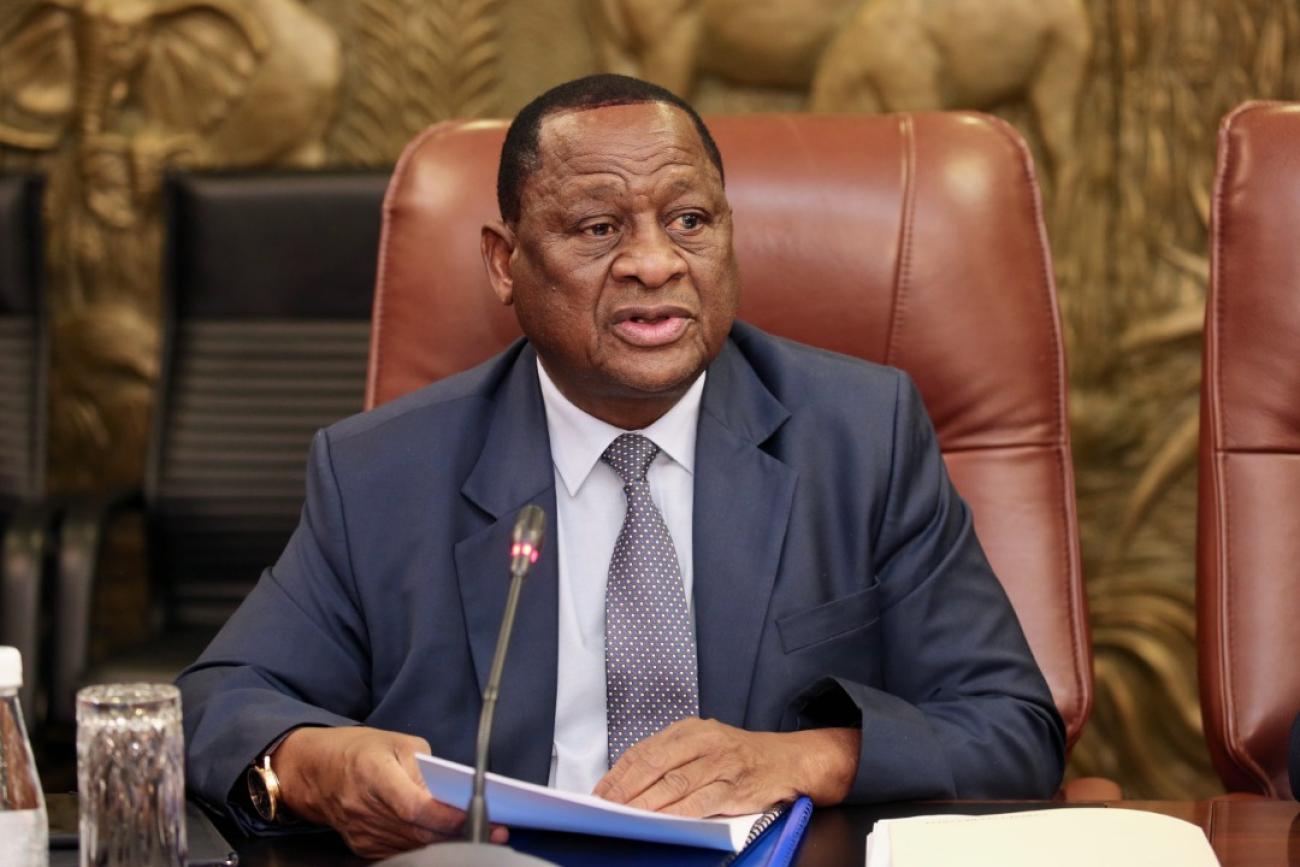Update on COVID-19 in Namibia

The Minister of Health and Social Services (MoHSS) announced three new confirmed cases bringing the total to 11 cases in Namibia.
In a press release issued on 29 March, the Minister of Health and Social Services, Dr. Kalumbi Shangula provided a detailed overview of the priorities regarding Namibia’s national response to COVID-19.
“We want the Namibian people to know our priorities and what is happening right now,” Shangula said.
Testing and finding cases:
- Namibia is undertaking expedious identification of all those who had contact with known cases, monitoring them for 14 days ( based on the incubation of the disease). When those display symptoms, they are tested.
- Testing is also being undertaken on people with travel histories and symptoms who meet the case definition of suspect cases. The Robert Mugabe Clinic is also set up and operating for COVID-19 screening, with screening services to be made available in other areas soon.
- Testing is furthermore also taking place at a private laboratory, especially through private hospitals. However, all test results conducted on specimen collected within Namibian borders must be reported to the National Institute of Pathology. This is important to ensure a truly national response.
- A 12-bed facility, within the Windhoek Central Hospital Complex, built with prefabricated technology will be handed over by the contractor next week.
- In other regions across the country, especially at the District Hospitals, preparedness has been scaled up. This includes preparation of quarantine and isolation facilities.
Clinical management:
- People sick with COVID-19 or any similar illness, is being provided with care. It has been shown from other countries that most people who contract COVID-19, will have mild illnesses and will not require hospital care. But for those who do, the Ministry has prioritised the capacitation, training and preparation of hospital staff, protecting health care workers, increasing capacity of intensive care, and coordinating with private hospitals.
Points of entry:
- In line with the State of Emergency, only Namibians, holders of permanent residence permits and persons domiciled in Namibia may enter the country. Those who enter the country are screened at Points of Entry and are subjected to 14 days supervised quarantine. A special dispensation for providers of essential and critical services is granted to ensure that normal life in the country can continue.
- Travel restrictions that Government has announced, means screening at all land, air and sea entry points for those who still arrive and quarantine of those who are at risk of exposure in the countries from which they are coming.
Lockdown of Khomas and Erongo Region:
- The latest measure is the Lockdown of Khomas and Erongo Regions, inclusive of Rehoboth and Okahandja local authority areas.
Communication to the public:
- Namibians want clear and factual information about the coronavirus and what is being done to help them remain safe during the pandemic. Unfortunatley, much false information is spreading on social media and in other places. The Government is aggressively expanding ways of reaching out to communities and stakeholders.
- Frequent press briefings, radio and tv appearances, community engagements and publication of information, communication and education materials. These will continue and will be adapted to reach all Namibian populations. This is an evolving pandemic and the Government wants to keep pace.
- The COVID-19 information hotline: 0800 100 100 remains operational. The Ministry continues to take hundreds of calls and operators provide correct and authenticated information and advise Namibians who have concerns.
With the priorities in mind, Dr. Shangula said, “We shall continue this fight and we call on all Namibians to join this fight. There is much that can be done by all of us to stop the spread of COVID-19; washing our hands with running water and soap; staying away when we are sick; avoiding face touching with unwashed hands; avoiding crowds and gatherings; and staying informed. It will take all of us, but Namibia will rise to this occasion.”
Namibians were reminded to adhere to the regulations described during the declaration of a National State of Emergency on 17 March 202 and a lock down strategy which was implemented as from 27 March to 17 April 2020. The Ministry called on the country to stay home, avoid crowds and maintain personal hygiene.
More information: https://bit.ly/2UtHnbe











